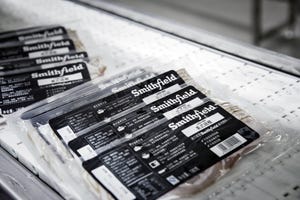August 22, 2012

Agriculture Secretary Tom Vilsack today announced a loan guarantee to Chemtex International, Inc., (Chemtex), to construct a 20-million-gallon-per-year cellulosic ethanol refinery in Sampson County in eastern North Carolina. The project, a first-of-its-kind commercial facility in the Mid-Atlantic region, will help reduce the nation's dependence on foreign oil, increase farm income and create jobs in the region. “Today's announcement supports the Obama Administration's 'all-of-the-above' energy strategy to embrace alternative American-produced feedstocks that support our nation's energy independence and provide jobs in rural areas,” Vilsack says. “At USDA, we are focused on the production of renewable energy from a wide variety of non-food sources, including energy grasses. The facility we are announcing today will help create more than 300 jobs in North Carolina and is a perfect example of how producing home-grown energy is good for the economy and good for our energy future.” The Chemtex facility is expected to create 65 fulltime jobs with estimated average salaries of more than $48,000 per year. An additional 250 indirect jobs are also anticipated in areas such as feedstock supply, maintenance and transportation. Once operational, the facility is expected to convert 600,000 tons of energy grasses per year into an estimated 20 million gallons of cellulosic ethanol (advanced biofuel) using a proprietary enzymatic hydrolysis process. The plant will produce biofuel for eastern transportation markets using non-food biomass feedstocks. USDA, through its Rural Development Biorefinery Assistance Program (Section 9003 of the 2008 Farm Bill), approved a $99 million, 80% loan guarantee to finance the project. The loan guarantee approval is subject to conditions that Chemtex must meet prior to closing of the loan. Sampson County and eastern North Carolina farmers will directly benefit through the sales of newly established energy grasses to the biorefinery. Chemtex is working with local farmers and producer organizations to begin growing energy grasses for the facility. About 30,000 acres will be required to supply the facility with sufficient feedstock. In partnership with the Biofuels Center of North Carolina, Chemtex has identified nearby farmland that is currently growing Coastal Bermudagrass to manage swine lagoon effluent. Conversion from Coastal Bermuda to high-yielding energy grasses, including miscanthus and switchgrass, will provide Chemtex a cost-effective biomass feedstock for cellulosic ethanol production and area swine farmers with increased economic opportunity as well as the land stewardship benefits of enhanced effluent management. In June of this year, Chemtex was awarded $3.9 million by the USDA, under its Biomass Crop Assistance Program, to support the establishment of over 4,000 acres of miscanthus and switchgrass across 11 counties in North Carolina. The feedstock will be part of the biomass supply for Chemtex's facility. The net increased revenue to local growers is projected to be $4.5 million per year. Today's announcement is part of a larger USDA effort to produce advanced biofuels in every region of the country. USDA has funded eight additional biorefineries that are using feedstocks like agriculture residue, woody biomass, municipal solid waste and algae in states such as, Michigan, Oregon, Florida, Nevada and New Mexico. USDA is also investing in research by coordinating with five regional research centers to work on the science necessary to ensure profitable biofuels can be produced from a diverse range of feedstocks. The Biorefinery Assistance Program (Section 9003 of the 2008 Farm Bill), administered by Rural Development's Rural Business and Cooperative Service, is designed to financially assist with the commercial deployment of production technologies to produce advanced biofuels, and thereby increase the energy independence of the United States; promote resource conservation, public health, and the environment; diversify markets for agricultural and forestry products and agriculture waste material; create jobs and enhance the economic development of the rural economy. |
You May Also Like


